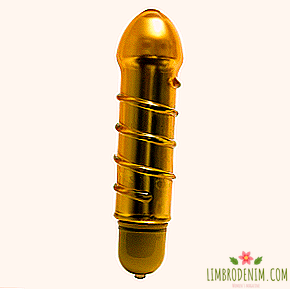No time to get sick: Why do we feel so bad in winter
When for almost half a year the number of sunny days is close to zero, and outside the window is something between rain and snow, it is increasingly difficult to perceive winter as a time of miracles and joys. Even if you do not get cold and get vaccinated against influenza in time, the number of perfectly healthy people in this period decreases - for example, we now have half the wording. It seems that during this period all diseases are exacerbated from the endless drafts of frost and damp. Is this true? We’re sorting it out with experts: Mikhail Lebedev, an expert at the Center for Molecular Diagnostics (CMD) at the Central Research Institute of Epidemiology of Rospotrebnadzor, Natalia Egorova, chief physician at the Integrative Medicine Clinic "First Line. Health Care Resort" and an allergist and immunologist Olga Zhogoleva. .

Is it true that immunity decreases in winter?
Immunity is a very stable and complex system, therefore expressions like “his immunity has fallen” or “I have low immunity” usually do not correspond to reality. The human immune system has been formed for thousands of years: the body “learned” to survive in the face of attacks by millions of microorganisms and constant mutations of its own cells. The result of this "learning" is the ability to recognize and destroy billions of alien microorganisms or "broken" cells of their own body.
Therefore, neither microbes nor hypovitaminosis can “reduce immunity” (there is no talk about avitaminosis in modern cities). Doctor Natalia Egorova notes that it’s correct to speak about immunodeficiency only when it is caused by serious disorders, such as HIV infection or leukemia, or is a consequence of repeated chemotherapy. Susceptibility to colds in the cold period of the year is not associated with a decrease in the resources of the immune system. And, of course, the treatment of real immunodeficiency is always intensive replacement therapy; one intake of vitamin complexes and dietary supplements does not solve this problem.
Why do we catch cold all the time
Lack of fresh air and sunlight, poor nutrition, frequent lack of sleep, stress, lack of exercise and cold, which are increasingly encountered in winter, lead to the development of a large number of free radicals - oxidants with damaging effects. The latter are opposed to antioxidants - vitamins C, E, D and other useful trace elements such as beta-carotene, selenium, iron, zinc, manganese (for example, prophylactic intake of vitamin D can reduce the risk of a cold). If these substances are not enough in the diet, the number of oxidants increases. As a result, the balance is disturbed, and while the body adapts to new conditions, its protective functions temporarily weaken and the risk of catching an acute respiratory viral infection increases. These are just some of the causes of weakness, irritability and other manifestations of bad health in the autumn-winter period.
Allergologist-immunologist Olga Zhogoleva adds that the increase in cold cases during the cold season is not associated with deterioration of the body’s work or a strong increase in the number of viruses in the environment, but with behavioral changes: you have to spend more time indoors, contacting people, often with closed windows, and the chance of getting infected and getting sick increases. Another provoking factor is dry air due to running batteries. Dryness increases the permeability of the nasal mucosa (moisture is a barrier against dangerous microorganisms, which ensures rapid transport of antibodies, immunoglobulins and peptides to the site of infection), which also simplifies the task of viruses and bacteria to enter the body and multiply.

How to help yourself
Viruses can be called intracellular "parasites." Their reproduction occurs inside the affected cells - in the case of SARS it is the epithelium of the upper respiratory tract. The source of infection is not cold air, but a sick person who “exhales” viruses into the environment. At the same time, expert Mikhail Lebedev notes that when the thermometer drops below fifteen degrees Celsius, the influenza virus becomes more resistant to the effects of the external environment - its shell turns into a dense, viscous gel and it circulates in the air longer.
However, the widespread belief that viruses causing ARVI begin to actively proliferate during the cold months is not entirely true. The graph shows that, for example, rhinovirus and parainfluenza virus (PIV) multiply from March to November, adenovirus and metapneumovirus (MPV) - throughout the year, and only respiratory syncytial virus (RSV), coronavirus, influenza virus and its adjoining Streptococcus group A (the bacterium that causes sore throat) is most active in winter.
In order not to catch the infection during the cold season, Olga Zhogoleva advises to air the premises more often (at least three or four times a day) and to humidify the air with a humidifier or sink (the humidity in the room should normally be 40-60%). You must take short breaks during the working day and go out, drink enough liquid and, if necessary, use a spray with saline (to improve sales, it is also called “sea water”) to moisturize the nasal mucosa. Hardening also helps to "tune" the body against viruses. True, immediately pour cold water is not worth it; It should start with dousing with warm water, gradually lowering its temperature.
Why do chronic diseases worsen in frost?
Adverse weather conditions - frequent precipitations, cold wind, frost - make you stay in closed rooms longer and move less. The circulation is worsening, and congestion may occur, such as edema. Nutrition often lacks fiber, which, together with a lack of physical activity, can disrupt the bowels and lead to constipation. Damage from free radicals is often systemic in nature, so chronic infection, if present, can worsen - for example, in the mouth, intestines or urinary tract.
In addition, cold street air can increase tooth sensitivity, contribute to the exacerbation of periodontitis and other inflammatory diseases, and seasonal changes in nutrition - reducing the number of fruits, herbs, vegetables in the diet and increasing sweet - contributes to the development of caries. Complaints of joint pain are also not uncommon in the cold season. They are usually associated with an old trauma or a chronic disease, such as arthritis, that remind oneself when a decrease in atmospheric pressure occurs before precipitation falls.

Why do you need vitamin D
According to the doctor Olga Zhogoleva, residents of the Northern Hemisphere are recommended to take vitamin D, which is involved in calcium metabolism, as a preventive measure against many diseases. Vitamin deficiency is attributed to a lack of sunlight in late autumn and winter - although even where there is plenty of sunshine, vitamin D is recommended in addition, because protecting the skin from burns and the risk of melanoma does not allow the amount of sunlight needed to form a vitamin.
In this case, a violation of calcium metabolism often provokes joint problems, caries, hair loss, dry skin and brittle nails. To replenish stocks of vitamin D in the body, you need to include more fatty fish (salmon, trout, herring), eggs, egg yolks, cheese, sour cream more often. If the vitamin deficiency is too large, correct the situation with changes in nutrition will not work. In this case, you need the help of a doctor.
Why do I need to wear a hat
Another factor causing dry skin and hair loss is dry indoor air. True, these problems may also be associated with iron deficiency characteristic of women. In some cases, dry skin and hair loss is a symptom of endocrine disease; Dryness can also be associated with a lack of collagen or hyaluronic acid. In the first case, consultation of the endocrinologist is required, in the second - a cosmetologist.
Natalia Egorova notes that often unpleasant symptoms are caused by an imbalance of the water balance in the body (bioimpedancemetry - a study of body composition) reveals this state or a shift in the acid-base balance towards the acidic medium (you can diagnose the problem using saliva pH-metry). Intensive hair loss can begin due to a change in temperature: cold contributes to the narrowing of the blood vessels of the scalp, resulting in hair follicles no longer receive nutrients in the right amount. Therefore, before going out, it is worth wearing a hat, as my grandmother bequeathed.
However, hats and hoods can also harm your hair, if you do not take them off for too long - the hair is at risk to become brittle. The problem is usually solved by mesotherapy (injections of drugs that stimulate hair growth), the use of medical cosmetics or just a new haircut. But headaches are not caused by changing weather or precipitation, but, as a rule, are associated with sleep disturbance or stress. Therefore, it is necessary to sleep eight hours a day and master relaxing techniques - a sure way to correct the situation. With repeated prolonged headaches, it is worth a visit to the therapist.
Photo:Sergo - stock.adobe.com, lana839 - stock.adobe.com, v_sot - stock.adobe.com, Derekis





